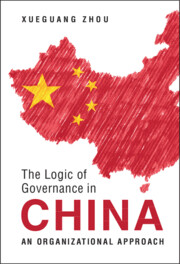Book contents
- The Logic of Governance in China
- The Logic of Governance in China
- Copyright page
- Contents
- Figures and Tables
- Preface
- Abbreviations
- 1 Introduction: The Logic of Governance in China
- Part I The Logic of Governance: Institutions and Mechanisms
- Part II The Logic of Governance and Government Behavior
- Part III The Logic of Governance and Chinese Society
- 9 The Road to Collective Debt: Bureaucrats Meet Villagers
- 10 Multiple Logics of Village Elections
- 11 Unorganized Interests and Collective Action
- 12 Conclusion: The Logic of Governance and the Future of China
- Glossary
- References
- Index
10 - Multiple Logics of Village Elections
from Part III - The Logic of Governance and Chinese Society
Published online by Cambridge University Press: 16 December 2022
- The Logic of Governance in China
- The Logic of Governance in China
- Copyright page
- Contents
- Figures and Tables
- Preface
- Abbreviations
- 1 Introduction: The Logic of Governance in China
- Part I The Logic of Governance: Institutions and Mechanisms
- Part II The Logic of Governance and Government Behavior
- Part III The Logic of Governance and Chinese Society
- 9 The Road to Collective Debt: Bureaucrats Meet Villagers
- 10 Multiple Logics of Village Elections
- 11 Unorganized Interests and Collective Action
- 12 Conclusion: The Logic of Governance and the Future of China
- Glossary
- References
- Index
Summary
Stipulated by the provisional “Organic Law of Village Committees” promulgated in 1987, village elections are an institutional practice by which, every three years, villagers elect or reelect members of the village committee – the governing body of their village. Both in form and in practice, village elections are an institution associated with a set of clearly specified rules, procedures, and expectations regarding both the election process and the functioning of the elected village committee. During the two decades between the 1990s and 2000s, village elections evolved through intensive interactions among multiple actors, involving state policies, local governments, and villagers. There have been a large number of studies on this topic (He 2007, Manion 2006, O’Brien and Li 2000, O’Brien and Han 2009, Perry and Goldman 2007, Shi 1999). The emergence of village elections in rural China presents a fascinating case for understanding how different institutions work and change in relation to one another, especially how over time state policies and the evolving role of local governments interact with villagers in the process of rural governance.
- Type
- Chapter
- Information
- The Logic of Governance in ChinaAn Organizational Approach, pp. 241 - 273Publisher: Cambridge University PressPrint publication year: 2022



